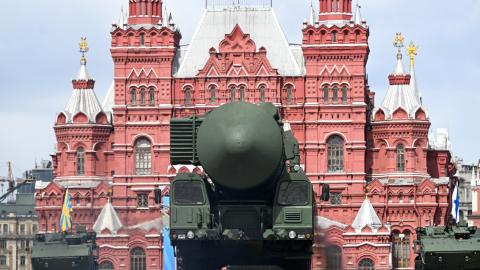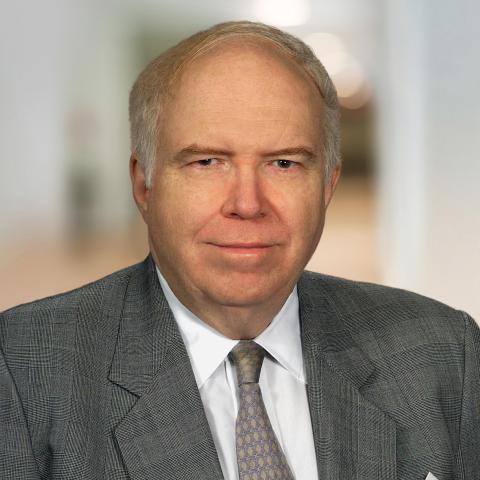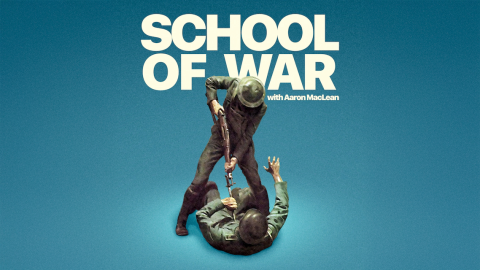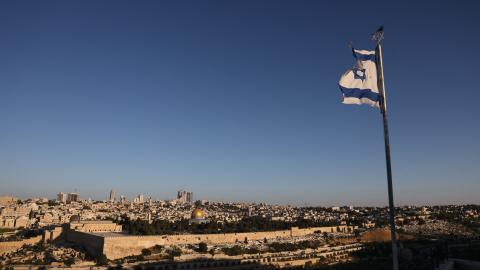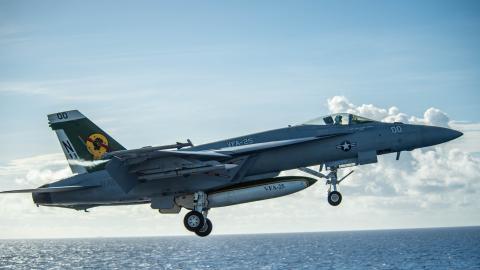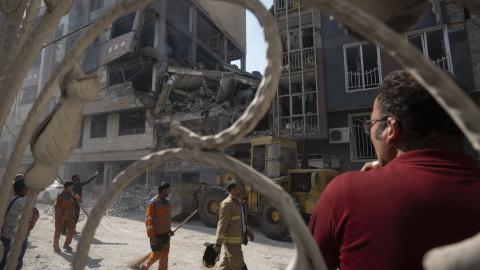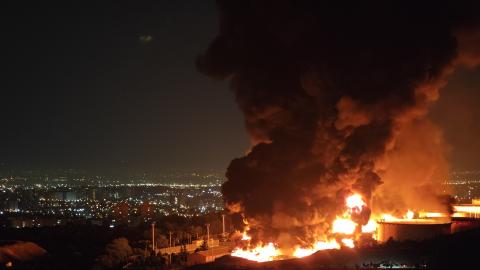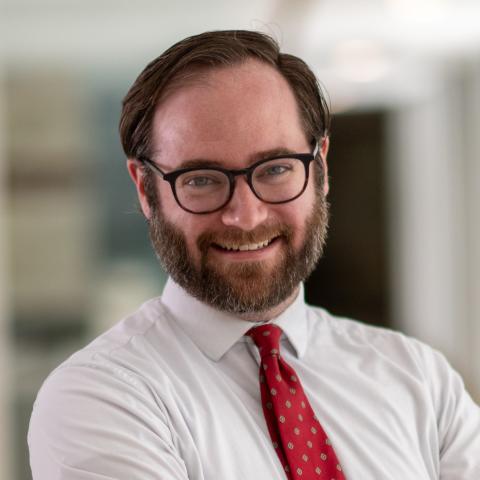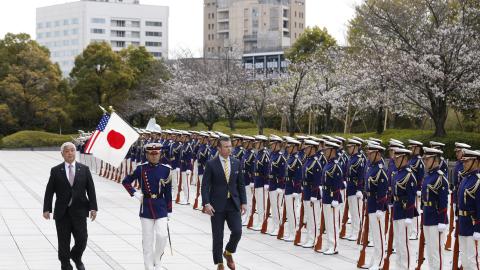Any foreign policy strategy is based on ambitions, objectives, apprehensions and values of a state’s leadership. So before addressing directly the subject of my essay, I am compelled to devote some time to this political motivation of the Russian leadership’s behaviour.
We all remember the famous Churchill saying: ‘Russia is a riddle wrapped in a mystery inside an enigma.’ But fortunately, in our current situation, we possess a key to this riddle/mystery/enigma. One hundred percent of Russian foreign policy is driven by one person, Vladimir Putin. The key to Russian foreign policy, its strategy, its set of motivations and interests, all of it comes from this one particular person. Putin’s highest priority is to remain in power forever. He saw what happened to Mubarak and especially what happened to Gaddafi when they had lost power, and he became determined never to leave the Kremlin.
Until this recent Ukrainian crisis, the Putin regime was an authoritarian kleptocracy without much of an ideological pretence. It had no foreign agenda beyond motor reaction to what it perceived as external threats. And certainly Ukraine’s European aspirations and its Europe-bound political vector were perceived by Putin’s Russia as an existential threat because Ukraine’s success would present an undesirable example for the Russian society. That is why he first tried to bully and bribe Yanukovych into refusing an association agreement with the European Union. And then after Yanukovych’s kleptocracy was overthrown, Putin became determined to either bend Ukraine completely to his will or else to dismantle it. And the first act on that agenda was the annexation of Crimea, the act by which Putin’s Russia broke a dozen of international agreements signed by the Russian Federation.
I think that Putin’s Crimea speech delivered by him for the occasion of Crimea and Sevastopol formally joining the Russian Federation was a political event even more important than the annexation of Crimea itself. The task for Putin during this speech was to legitimise, to justify, or even to glorify the act of annexation. But he did much more. He fulfilled an even more important mission. He created a new ideology of the so-called ‘Russkiy Mir,’ the Russian World.
No dictatorship can sustain on violence and intimidation alone. A protracted dictatorship needs some kind of an ideology or a mythology that would appeal to a considerable part of the population for a considerable span of time: like Hitler’s ideology of the superiority of the German people or Stalin’s ideology of communism.
Many pundits, myself included, noted that Putin’s Crimea speech was a remake of the German Chancellor Hitler’s Sudetenland speech delivered for the occasion of annexation of Sudetenland. Putin’s Crimea speech borrowed heavily from the main concepts and even from the terminology of Nazi political foreign policy and propaganda.
First came this concept of a ‘divided nation.’ Putin informed us that we, the Russian people, are a ‘divided nation.’ This was the first time this term was used in such a high level speech.
Next he justified the Crimean annexation as a part of gathering of historically Russian lands.
Then he coined a new label for his opponents, ‘Natsional-predateli,’ or ‘nation-traitors.’ That set a new tone as there previously had been no such term in the Soviet or Russian political vernacular. The Soviets’ opponents were castigated as ‘enemies of the people’, while ‘nationtraitors’ or ‘Natsional-predateli’ is a pure Nazi vocabulary.
However the most important concept was the concept of the ‘Russian World’. Putin claims it is his right and even a sacred duty to protect not citizens – not Russian citizens – but ethnic Russians or Russian language speakers, all over the world.
And to demonstrate that Crimea was only the first step in promoting the Russkiy Mir agenda, Putin immediately initiated another stage. He also coined another new term, ‘Novorossiya’ (‘new Russia’). By Novorossiya he is referring to the eight Ukranian regions, which were, in his opinion, unjustly handed over to Ukraine after the Bolshevik revolution.
So now Putin has created a long-term ideological system he can use to justify his role forever, because it is a very long-term program. Any dictator, as I already noted, needs such an excuse. It’s much more convenient to claim he is promoting the great Russian idea from the Kremlin, than to admit he was just sitting there to make tens of billions of dollars for himself and his cronies. These were no empty words or slogans.
His hybrid war against Ukraine is going on now. There are ups and downs. As I already mentioned, the main objective is to control Kiev, to control the Ukrainian government and Ukraine as a whole. He doesn’t need an annexation of Donetsk and Luhansk. Coincidentally he is now the most ardent supporter of the territorial integrity of Ukraine, except for Crimea, of course. He needs to have the cancerous tumour of Novorossiya inside Ukraine to spread instability and chaos.
But Kremlin propaganda offices present these events not as a war of Russia with Ukraine. Every day on the TV, Kremlin talking heads tell us that it’s much more than that. It’s a war between Russia and the United States of America. Ukraine is just terrain on which this war is being staged. Even more philosophically, it is a war between Russkiy Mir, the Russian world, and the Anglo-Saxon world. Putin explains that we Russians have a unique genetic code, superior to the genetic code of the Anglo-Saxon world because Anglo-Saxons are mercantile, they are concerned about their own enrichment, and due to our specific Russian genetic code, we possess more spirituality.
For example, one of the Kremlin guys – Vyacheslav Nikonov, grandson of Vyacheslav Molotov — has made a historic claim that Russians are an Aryan tribe which descended from the Carpathian mountains and spread all over the world until they reached Fort Ross, California.
No state or regime goes to war firmly convinced that it will lose it and Vladimir Putin is no exception: if he goes to war with NATO he will be acting based on the belief that he can win it.
That belief is based on Putin’s assumption that the logic of the mutually assured destruction (MAD) regime that prevented a major war between Russia and the West is broken due to divisions within the West regarding how to respond to a limited Russian nuclear strike.
If we read Putin correctly, the world is in a far more dangerous situation than most have thought and the risks to Russia’s neighbours, the West and Russia itself are far greater.
Even the most modest practical realisation of Putin’s idea of ‘assembling the Russian lands’ requires changes of the national borders of at least two NATO member countries: Latvia and Estonia. Because of the Western alliance’s Article 5 in which an attack on one is an attack on all, that would seem impossible given MAD.
But the MAD doctrine considered only a single most destructive scenario of a military conflict between nuclear powers, total war. The doctrine of mutually assured destruction is still valid, and it prevents a full-scale world war. But there are other scenarios, including the limited use of nuclear weapons by one side under conditions where the other side does not respond lest that lead to ‘mutual suicide.’
In his classic books On Thermonuclear War and Thinking About The Unthinkable, Dr. Herman Kahn, a pre-eminent nuclear strategist and one of the founders of the Hudson Institute, pondered a potential scenario of a limited nuclear war initiated by a nuclear power in order to achieve certain political objectives. It is feasible that in a more volatile geopolitical situation, a nuclear power determined to change the status quo, armed with the advantage of political will, and indifferent to the value of human lives, be it its own or those of others, while being inspired by certain adventurism, could achieve serious foreign policy gains through the threat of limited application of nuclear weapons or through the actual limited application itself. Russian military doctrine has been recently changed allowing Russia to use nuclear weapons in regional and even local conflicts.
Clearly Putin does not seek the destruction of the hated United States, a goal that he could achieve only at the price of mutual suicide. Instead, his goals are significantly more modest: the maximum extension of the Russian World, the breakdown of NATO, and the discrediting and humiliation of the US as the guarantor of the security of the West.
To put it in simplest terms, Putin’s actions would be a revenge for the defeat of the USSR in the third (cold) world war just as the second world war was for Germany an attempt at revenge for defeat in the first.
Let us follow Herman Kahn and try to think a bit about the unthinkable. Let us contemplate that some day in the Estonian city of Narva, which has a predominately Russian population, Putin’s ‘polite green men’ conduct a referendum and the Kremlin says, well, this part of Estonian territory historically belongs to the Russian world. Well, a year ago, the annexation of Ukraine was unthinkable, so we should think about such kinds of scenarios. The Estonian government, referring to Article 5 of the NATO agreement, asks NATO countries to help. And if NATO countries can help, their joint military might would be much stronger than the Russian Army. At this point, Putin publicly states or says in private talks with his ‘partners’ in Europe; ‘OK, we realise that a more powerful conventional military force is ready to confront us in our pursuit of the Russian world agenda, so we are ready to use a nuclear weapon if NATO conventional forces try to eject us from Estonia.’
How will Western politicians react? It is difficult to predict. I think that a vast majority of people both in Europe and in the United States would say that we are not ready to die for Narva, just as many Europeans stated in 1930s that they were not ready to die for Danzig. So this situation will present an unthinkable choice for the West: either a humiliating capitulation by refusing to help Estonia that in turn would also mean the end of NATO, the end of Western alliance, the end of the United States as the guarantor of Western security, or providing help that would lead to war with a thermonuclear power.
Putin seems to be convinced that the West would blink, and that he can outplay Western countries and their leaders in potential military conflicts that would occur along the path to the realisation of his great idea of the Russian World. Regardless of the fact that Russia is much weaker in conventional arms than NATO and does not have an advantage over the US in nuclear ones.
‘By the spirit we will take them,’ Putin calculates. ‘By the spirit and by boldness.’
Putin’s plans are extremely adventurist but he believes they have chances for success. Nuclear bullying and nuclear blackmail are going on with growing intensity as part of psychological warfare against West.
Almost every one of Putin’s statements includes the phrase ‘Don’t forget that we’re a nuclear power.’ There was a scandalous performance during a meeting with a top Russian official in August in Sochi, when Vice Speaker of the Duma Mr. Zhirinovsky threatened to completely annihilate the Baltic States and Poland. Mr. Putin was present and in summing up the panel discussion, he noted approvingly that Vladimir Zhirinovsky’s speech was very vivid and flamboyant, and only added that maybe not all of his words reflected current government policy.
There are two parallel ways to tackle this dangerous Narva Dilemma. The first is to defeat decisively and to discredit forever this crazy idea of ‘Russkiy Mir’ (the Russian World) here and now in Ukraine by purely economic and political instruments without boots on the grounds and planes in the air but helping Ukraine, including supplying it with modern weaponry. The West has a capability to do that to avoid facing the choice between humiliating capitulation and a nuclear war down the road in case of Putin success in Ukraine.
The second one is to deprive Mr. Putin of any illusions about NATO weakness and the US inability to fulfil its obligations according to Article 5 of NATO Charter.
Ever since Vladimir Putin began his aggression in Ukraine and sent signals that he was prepared to move against the Baltic countries, people in the West, either because they were intimidated by the Kremlin leader’s words or for other reasons, have asked whether their countrymen were ‘prepared to die for Narva.’
Since April 2014, there have been many discussions about ‘the Narva dilemma’ and about Putin’s success in supplying the West with a Hobson’s choice between a ‘shameful capitulation’ and a ‘nuclear war with someone living in another reality.’ Until very recently, those discussions suggested that the West had not made a decision one way or the other.
Moreover there was evidence that Putin was making progress in splitting the alliance and making any tough response less likely. There was the pro-Putin ‘drift’ of Hungary, the Czech Republic and Slovakia that according to Jackson Diehl of the Washington Post were clearly ‘hedging their bets’ in the face of Putin’s threats.
It certainly appeared that the Kremlin had achieved its first psychological victory in its hybrid war with its Baltic neighbours. Three NATO countries were suggesting that they would not want to defend another NATO member against Putin’s efforts to be ‘the ingatherer of immemorial Russian lands.’
But later the situation has changed completely and consequently, the question ‘are you prepared to die for Narva?’ should be posed not to Western capitals but rather to Moscow and especially to the Kremlin.
Western leaders no longer view Putin as a ‘partner’ but rather as a strategic problem which requires an immediate and clearly formulated response, and they are making the kinds of statements and taking the kinds of actions that show that they are prepared to live up to the principles fundamental to NATO.
Today there are no politicians like Churchill and Roosevelt in the West, but what many had seen as ‘a collective Western Chamberlain’ have nonetheless found an adequate answer to Putin’s growing nuclear blackmail.
The 2015 September Wales NATO Summit supported deployment of American troops on the territory of the Baltic countries in order to act as a restraining influence on the Russian president and his threats. Other NATO countries have dispatched troops there as well.
The symbolic presence of American troops in the region of Narva psychologically transforms the situation 180 degrees. The appearance there of the first armed polite little green man would automatically mean the involvement of the Russian Federation in a full-scale war with the United States.
That in turn means that Putin and his entourage need to begin asking themselves the question that they worked so hard earlier to get some in the West to ponder. Is Putin himself ready to die for that northeastern Estonian city at the eastern edge of NATO and the European Union?
